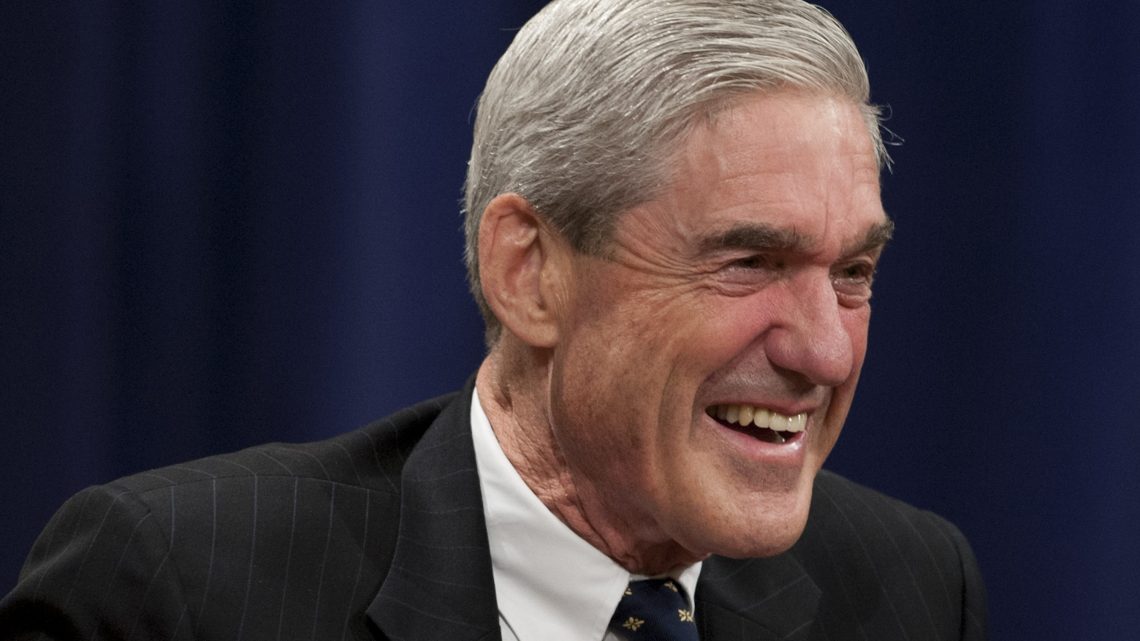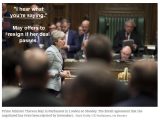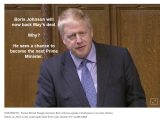
Trump Never Had Anything to Fear from an Insider Like Robert Mueller
March 27, 2019I’ll be honest: I didn’t follow every twist and turn of Robert Mueller’s investigation into foreign meddling in the 2016 election. Granted, it was easier to pull this off if you never watch cable TV, which I don’t. But my lack of interest wasn’t the product of indifference toward Donald Trump’s presidency or the integrity of America’s democracy. No, I had a pretty good reason for sitting this whole saga out, one borne out not only by the lack of charges on top Trump officials for conspiring with Russia, but Mueller’s punting on whether President Trump obstructed justice, which appeared to be carried out in plain view.
The truth is that America’s justice system is incapable of challenging real power, and I was not about to invest time, effort, or expectation into a doomed investigation mediated through a broken mechanism for accountability. It was irresponsible for pundits and media figures to pour hope into the idea of Robert Mueller—a decorated career law-enforcement official and corporate lawyer—reversing an institutional bias he has marinated in his entire professional life.
This is a serious policy problem, whether Donald Trump coordinated with Russians or not. We have effectively written white-collar crime and public corruption out of the US code. The resulting two-tiered system of justice frustrates and disillusions the public, and breaks faith in government and its institutions. It’s something we must put actual effort into remedying, if not under Donald Trump, then under whoever comes next.
Not so long ago, I did obsessively follow a white-collar crime investigation that, if successful, would have rocked one of the most dominant industries in America. In the aftermath of the financial crisis, virtually every major US bank was caught verifiably producing fabricated, forged, and bogus documents to foreclosure courts and county offices, facilitating the largest eviction crisis since the 1930s with false evidence.
I watched as every state attorney general, Republican and Democrat, announced a full investigation into the abuses, and proceeded to skip the investigation and negotiate an unforgivably weak cash settlement. As I documented at VICE, I also followed an expansive federal investigation into foreclosure fraud, which agents called a potential “top ten Corporate Fraud case,” with millions of pieces of documentary evidence and an orgy of subpoenas and witnesses. It mysteriously ended with no indictments, except for one woman who lied to the feds.
Robert Mueller was FBI Director at that time. As far back as 2004, an FBI assistant director warned of an “epidemic” of mortgage fraud. But the Bureau, and the Justice Department, failed to stem that epidemic as it triggered financial crisis and painful recession. Nor did the government nail practically any major bank executive for the mountain of criminality engaged in during and after the crisis.
Combined with a lack of accountability for torture, or warrantless spying, or the lies that brought us to war in Iraq, the public got the message—at least I did—that justice in America is for people caught with an ounce of marijuana, not men in fancy suits or companies with teams of lawyers.
In 2013, Mueller left the FBI to defend corporations (including Facebook, Apple, and Sony) at the DC powerhouse law firm WilmerHale. Trump's legal team came largely out of the same milieu, with some key players attesting to having known Mueller for years. Other WilmerHale clients have included Ivanka Trump, Jared Kushner, and Paul Manafort. Numerous lawyers in the special counsel’s office also were expats from WilmerHale.
This merger of prosecution and defense, plucked from the same talent pool, breeds courtesy and respect rather than an aggressive search for the truth. Both sides of the investigation have similar world-views, and even similar past (and future) employers. They may well hesitate to discomfort powerful clients in good social standing.
Jesse Eisinger, who wrote the book on the inability of the Justice Department to indict the powerful, was convinced Mueller could break free of this trap. He had pursued a hard-charging investigation as head of the Enron Task Force, which convicted the company leadership. And he had voluminous resources (dozens of staffers, about 500 witnesses interviewed, over 2,800 subpoenas) and political protection from an entire party and half the country, granting the flexibility to conduct a fulsome investigation.
We haven’t seen Mueller’s report detailing his findings. But I’m sentimental, in that I expect that evidence of crimes leads to results. And what we know reflects poorly on the investigation.
For one, Mueller cut plea deals with Trump associates Michael Cohen, Michael Flynn, Rick Gates, and Paul Manafort (although that deal basically fell apart). In theory, plea deals exchange leniency for information for future indictments up the ladder. But here they did not lead to charges for anyone higher up in the campaign or White House, effectively making them leniency for leniency’s sake. Second, he never subpoenaed the president or interviewed him in person, a familiar outcome in white-collar investigations where prosecutors rarely question subjects.
Finally, Mueller declined to pass judgment on whether Trump or his aides obstructed justice in the inquiry, outsourcing that to Trump’s hand-picked Attorney General Bill Barr, who in a completely unsurprising development waived all charges. Anyone with a television—OK, so I do sometimes watch—saw Trump tell Lester Holt that he fired James Comey, explicitly because “this Russia thing with Trump and Russia is a made-up story,” as open and shut a case for obstruction as you can get.
Nothing compelled Mueller to punt on the obstruction question; the reason why you want a special counsel is to keep such matters out of the political realm. “I think courageous people have the courage to make decisions, and those who don’t punt decisions,” said George Terwilliger, a former Mueller and Barr colleague in the George H.W. Bush Administration, to the Washington Post.
Maybe Mueller saw the institutional barriers that protect white-collar suspects from prosecution and climbed down. The Supreme Court has thrown out several corruption cases, letting off politicians and corporate executives alike. The Justice Department’s standards for white-collar prosecutions in the corporate realm have been so out of whack that under the Obama administration they had to be rewritten to assure the public that individuals could be charged at all. Little has happened since, and prosecutorial discretion still gives powerful actors an escape hatch from justice.
The major indictments in the Mueller saga of non-Russians fall mainly into two categories: lying to the FBI, something that also helped yield the only foreclosure-fraud conviction in that probe, and unrelated frauds involving things like identity theft and dodgy mortgage deals and lobbying activities that have been carried out in plain sight for decades and probably would have continued were it not for the bright spotlight of the probe. In other words, if you’re well connected and you don’t lie to investigators, you’re probably in the clear.
The lesson here is that crime pays for the powerful. Two high-profile critics of the Russiagate investigation, Matt Taibbi and Glenn Greenwald, know this well, as they both previously wrote seminal books (The Divide, With Liberty and Justice for Some) on the failure to uphold equal justice for all. Strangely, in this ongoing sideshow, they have both focused on a media critique, rather than the root cause of what was so outrageous about the media’s actions: people like Donald Trump don’t go to jail.
Without question, the cottage industry of Mueller fanatics and media breathlessness and tchotchkes and parody songs on Saturday Night Live was always embarrassing. But there’s a specific reason why it was embarrassing: it placed false hope in an avatar of a broken justice system to fix that system.
There’s a policy response to this that goes beyond an OJ-style search for the real conspiracy. Democrats running for president need to reinvigorate the Justice Department and the way it conducts its work. If there are roadblocks to meaningful prosecutions of white-collar crime, departmental guidelines need to change, or Congress needs to assert its authority. If coziness between prosecutor and defense has become impenetrable, personnel with the will to see justice done must come into power. If we as a society feel the poor and vulnerable need to be treated with the same kid gloves as the powerful, then criminal justice reform can balance things in that direction.
At any rate, something must be done; the status quo is untenable. Whether or not a powerful person has committed a crime has become almost besides the point. The justice system has become a rogue actor, an umpire paid off by the pitcher. If we want a country where nobody is above the law, we have to act to secure that, or wallow in fantasy forever.
Sign up for our newsletter to get the best of VICE delivered to your inbox daily.
Follow David Dayen on Twitter.


